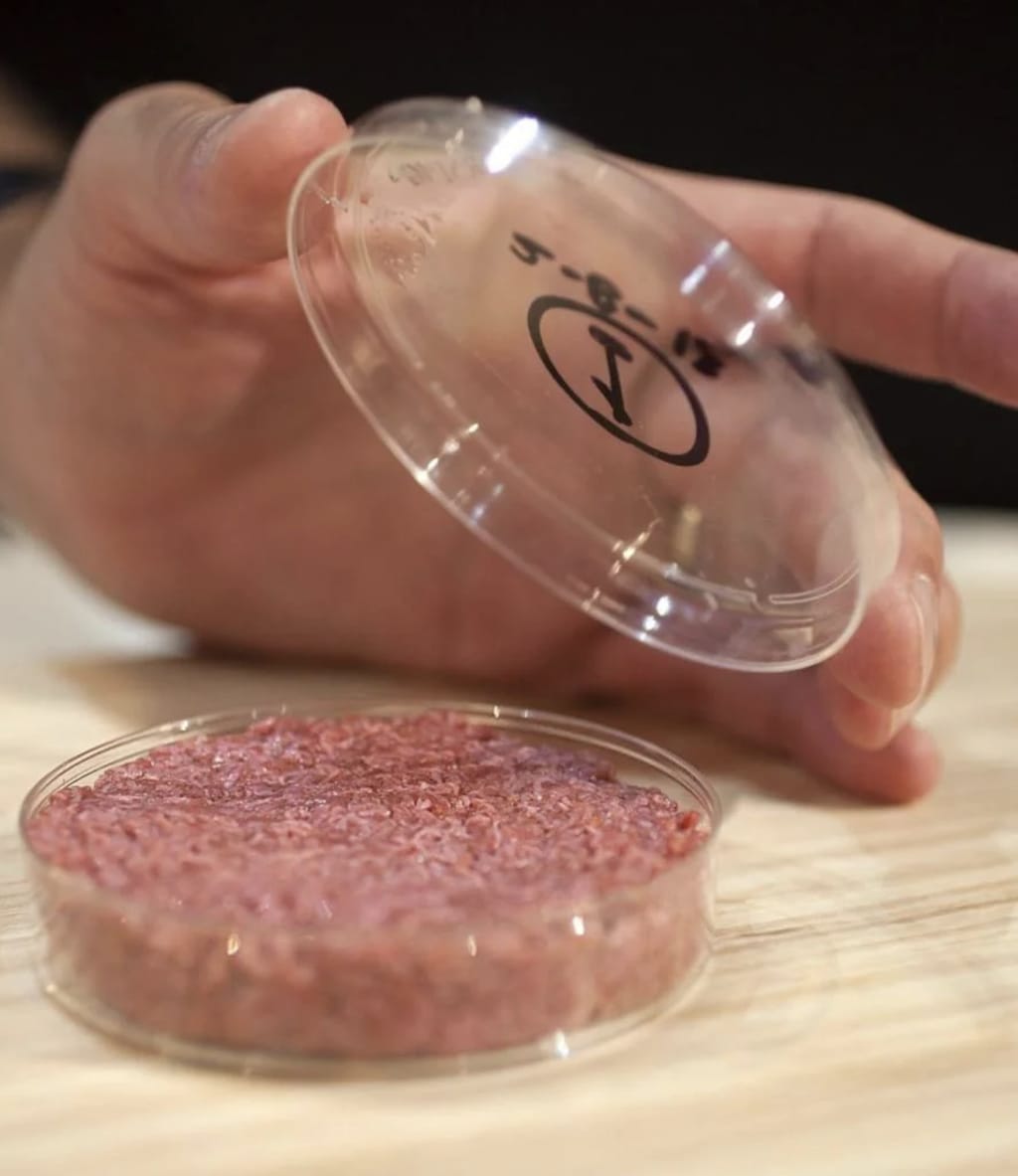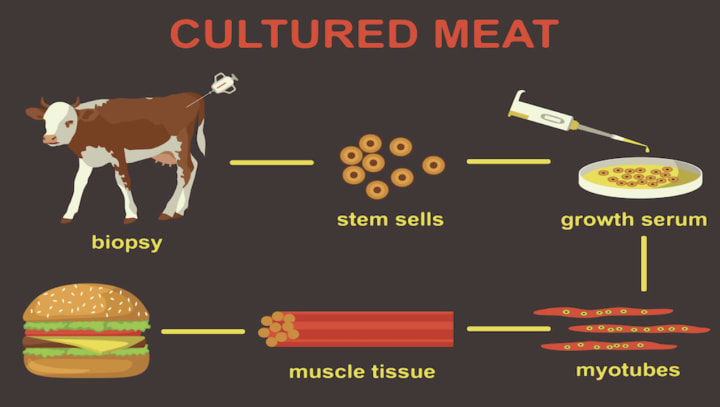
Introduction
In recent years, we have witnessed a groundbreaking development in the world of food production: cultured meat. This innovation challenges traditional animal farming practices by offering a sustainable and ethical alternative that has the potential to transform the way we consume meat. In this article, we will delve into the concept of cultured meat, its benefits, challenges, and the profound questions it raises about the future of our food.

Cultured Meat: A Novel Approach
The concept of cultured meat involves cultivating living tissue, cell by cell, in a controlled environment without the need for raising and slaughtering animals. Instead of grazing in fields, cows, chickens, or pigs contribute their cells to the production of meat in a process that takes place in machines called bioreactors. This approach not only eliminates the need for traditional animal farming but also addresses critical issues like land and water use, pollution, greenhouse gas emissions, and animal suffering.
Cultured meat, often referred to as lab-grown, farmed, or cell-based meat, is distinct from plant-based alternatives like Impossible Foods or Beyond Meat. Unlike these products, cell-based meat is actual animal tissue, offering consumers a taste experience remarkably close to that of conventionally farmed meat.
The Debate: Pros and Cons
The emergence of cultured meat has sparked a lively debate. Supporters argue that it presents a solution to some of the most pressing challenges associated with the livestock industry. These include reducing the environmental footprint, increasing food security, and addressing animal welfare concerns. Cultured meat has the potential to make a significant positive impact in these areas.
On the other hand, critics caution that it's still too early to determine the full environmental benefits of cultured meat when produced at a large scale. Some advocate for a more radical approach, suggesting that instead of investing heavily in alternative meat technologies, we should consider reducing meat consumption altogether.
Changing the Meat Consumer's Relationship with Food
One of the most intriguing aspects of cultured meat is its potential to reshape the relationship between meat consumers and their food. Research conducted by Dutch scientist Cor van der Weele revealed that as cultured meat becomes more common, conventional meat may start to seem increasingly unfamiliar to consumers. This shift in perception offers a glimpse into a world where animal suffering can be eliminated, better relationships with animals can be established, local food production can thrive, and people can still enjoy the taste of meat. This combination seems almost too perfect to be true, making cultured meat less alienating and more attainable.
The Future of Cultured Meat: A Thought Experiment
However, it's essential to remember that cultured meat is currently in the realm of a thought experiment. Significant technological advancements are required to make it more consistent, automated, and cost-effective. Ensuring safety remains a top priority, necessitating adequate bioreactor space for production.
In conclusion, the future of meat may very well involve cultured meat as a viable and sustainable alternative to traditional animal farming. While it remains speculative, this technology challenges us to rethink our relationship with food and the environment. As we continue to explore the possibilities, one thing is certain: cultured meat has the potential to be a game-changer in the way we produce and consume one of the world's most beloved foods.
Now, what do you think about cultured meat!
About the Creator
Lama kk
"Aspiring medical student 📚 | Art enthusiast 🎨 | Writer ✍️ | Exploring the worlds of medicine, art, and words. Let's connect!"






Comments
There are no comments for this story
Be the first to respond and start the conversation.